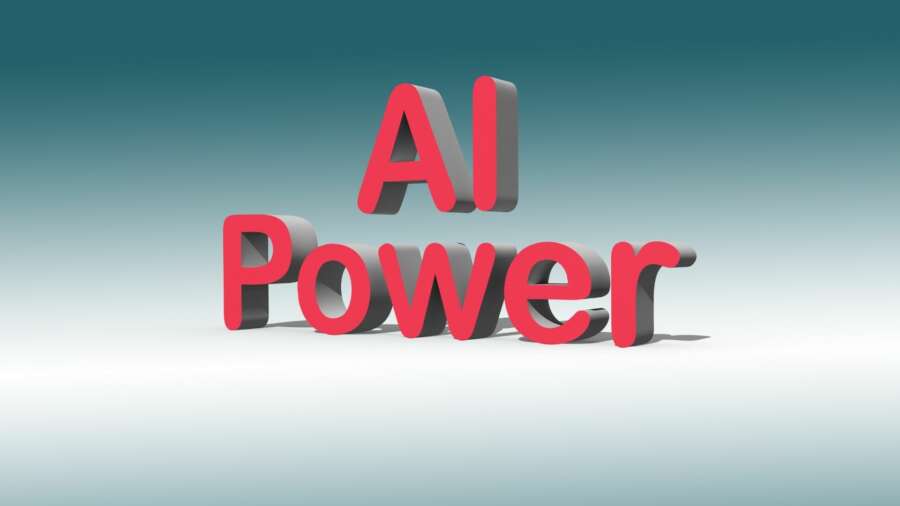
By Nadim Sadek, Founder and CEO of ProQuo AI.
What’s the point in having a brand? The answer is simple: brands exist to extract a premium return on an investment. If you make a spoon, it will have a utility value. Let’s say it’s 50 pence. With it, you can stir your coffee and eat your yoghurt. And the spoon-maker can decide that’s all good, since they procure their raw materials, manufacture their goods, distribute them, and collect cash, whilst still deriving a profit from that 50p of retailed value. Let’s say it’s a healthy profit margin of 20% – so they are making 10p per spoon. They sell 10 million spoons a year, with a turnover of £5m and a net profit of £1m.
But if you create the SuperSpoon company, you’re making a brand. Now you have to add on the costs of building a brand, which are likely to include: an identity, packaging, communications, PR, more extensive customer service and more human resource. Let’s say this will cost you 50p per spoon. You now have your original utility-product costs of 40p, and new brand-related costs of 50p – that’s 90p in all.
You’re investing more capital and there’s more at risk. The gain is that if you can sell your SuperSpoons at £1.50, you now have a profit of 60p per spoon, or 40%. You’ve risked more, employed more capital, created a more complex organisation; yet you’re rewarded with more cash per spoon, and a premium return on your investment. Your 10 million SuperSpoons generate £15m and your profit is £6m. You took a bet and increased your winnings six-fold.
Brands are business assets. They are here to create greater wealth for their enterprises. And they need to be managed to create the greatest return possible from the investment used to make them.
Managing a brand is no easy task. There are at least 13 Marketing Levers, and for every one of them, there are up to 6 actions that could be taken, so you could be thinking that there are at least 78 decisions a Brand Manager might take.
It’s not quite that linear, though, as marketing levers work in tandem. Produce a new pack and you’ll want new communications, then broader distribution, and perhaps a price adjustment. The interaction between all the potential actions, in any given order, actually results in a combination of over 25 million choices a Brand Manager can make during the typical course of a year in marketing.
So it’s not surprising that Artificial Intelligence has been brought in to help with brand management. Wherever there is a great complexity of choice, AI stands a good job of learning to evaluate and decide best choices. At its best, it does so with far fewer failures, at much lower cost, with greater speed, and ultimately with more reliability, than those of us wandering around ruminating over what might be the best decision in a given situation with a huge number of variables to consider. With vast experience, we might have the nose for the right direction, but have limited ability to parse massive amounts of data to formulate the right decision. All of which makes AI Brand Management a really tantalising thing – a reliable ally in the identification of which marketing investments will result in the greatest returns.
Until now, Brand Management has been an art, something that is taught and passed on through experience and time. It’s been a process of iterative learning – succeed, fail, revise, try again, succeed, fail, revise, go again, and so on.
As in many other arts, there are gifted people. They’ve created campaigns we’ll never forget (thanks, John Hegarty for Levi’s and others), made products we’d never live without now (thanks, Steve Jobs, first for the Mac), and devised strategies for distribution we never conceived of before (seriously Jeff Bezos, that was quite a dream in the garage). There are other, less known people who, year after year, create growing sales, cover over production difficulties, deal with political intrusions that harm their distribution deals, and win in a host of other day-to-day skirmishes without which no brand would endure.
For every Richard Branson, there are thousands of businesses out there crimping and preening their brands every day, to keep it steadily raising its value. It’s messy. But AI can turn brand management into a predictive science, that improves each day and so enables a brand to grow bigger, faster. At its most basic, AI can be used to spot patterns – between things you do and the results you produce. It can be used find relationships between data points – for example, where distribution has been increased, price decreased, advertising held steady, messaging changed, and new packaging introduced – and it can find the key variable that you might not want to invest in again. Or the killer piece of content which changed linear growth into super-linear. With real confidence, AI can be used to show that if you take action A, then B will result.
The key to making an AI machine is to train it and to teach it what decisions brand management experts would make. At ProQuo AI, for example, we feed our machines the commercial data of all the brands on our Brand Management Platform, from media investment, to stock levels, promotional activities to external events that might have impacted brand consumption, like a fuel strike, or pandemic. The more data the AI has, the smarter the pattern-finding becomes. It extrapolates. It learns things by category, by demographic, by time, by audience. Its super-brain extends beyond any experience any one of us can put together and achieves a wisdom that transcends what any one of us can learn in a linear career, even those of us who have happily twisted and turned along the way.
As a result, well-trained AI becomes the Brand Manager’s super-power. There will always be a special place for the masterstroke of genius, for the lateral thought that utterly subverts a category and delights its consumers. But most of the time, good Brand Management is about getting the odds right, getting as many things right as you can, knowing that decisions you’re making are ones based on more than a hunch or a hope. It’s about being sure of what you’re doing. That’s why AI Brand Management can help every Brand Manager be their best. You could say that it hands you a SuperSpoon.


